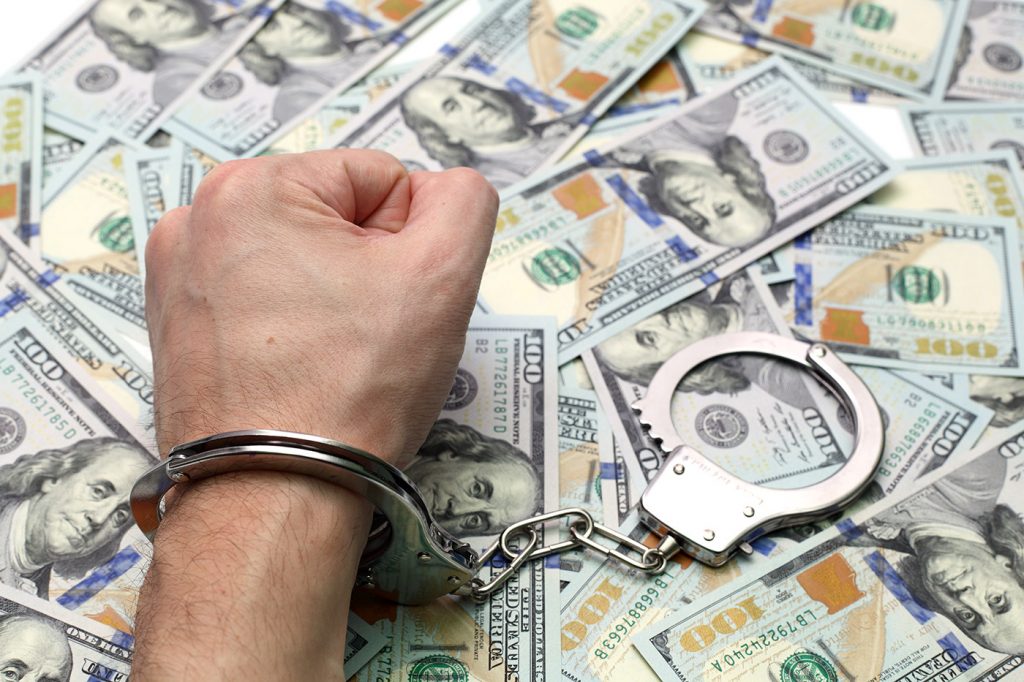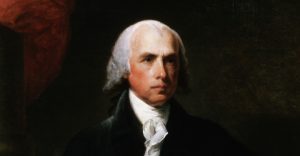Kalief Browder, an African American sixteen year old from the Bronx in New York City, was walking home from a party with his friend when he was stopped by police unexpectedly and charged with an alleged theft in 2010. The accuser, Roberto Bautista, was sitting in a police squad car and identified Browder and his friend as the thieves. The theft was a backpack that was said to contain $700 dollars, a credit card, and an iPod Touch. In his interrogation, with police, Kalief Browder insisted that he had not robbed anyone and that neither the backpack nor its contents would be found in his possession. Browder and his friend were then taken to the precinct where they were processed and taken to central booking. Within the following 48 hours Browder was interrogated and charged with robbery, grand larceny, and assault. At arraignment, bail was set at $3,000 dollars. If Browder’s family used a bondsman the amount would be ten percent plus fees or around $900 dollars for his bail to the bondsman. The bondsman would then post the entire bail amount with the court. The family could not pay $900 resulting in Browder remaining imprisoned at Rikers Island for the next three years.1


Debtors jail in colonial America was used to lock up those who owed money to the government. In today’s society, it translates into the cash bail system. 4 The for-profit bail system in the United States is used to keep those who are accused of breaking the law from harming anybody else or to be sure the accused will appear in court. If the accused is unable to pay the bail at the time of the arraignment, they may use a bondsman or they will remain incarcerated until their trial. For the poor, it is the latter. For Kalief Browder it was the beginning of the end. Only two countries in the whole world have a cash bail system, the United Sates and the Philippines. The cash bail system results in unnecessarily imprisoning citizens who do not pose as a threat to society and who most likely are not a flight risk. No pre-trial information is given to a judge before setting bail and there are no set standards on setting the amount for bail per case.5 Those who are wealthy enough to pay avoid the scarring effect prison has on one’s life. But for those who cannot afford bail, they face violence behind bars, debt, isolation, and at minimum a harsh punishment for those later found innocent, as in Kalief Browder’s case. This has created a two tier system in our judicial process. The first tier are wealthy offenders who can post bail and the second tier is everyone else who cannot afford equal justice or treatment.
Statistics show that 60 percent of people in jail from 2005 to 2015 were in jail awaiting trial. Three fourths of these individuals were accused of nonviolent crimes.6 This is alarming. On a national level, the United States imprisons persons who are essentially living in poverty and who are more susceptible to being involved or accused of a crime. In some instances, the court can grant “release on one’s own recognizance” or ROR. However, this is determined on a state by state standard. An example of this would be New York, the judicial system there would be more willing to grant ROR if the individual has a cellphone, has had a New York address for a year and has a job.7 These may seem like easy standards to meet, but consider those who are homeless, unemployed or cannot afford a cellular service on a regular basis. Their fate rests upon pre-trial bail. The bail money that the defendant does not have, requiring a bondsman, but not always attainable either.

- Johnson, Stephon “‘Time: The Kalief Browder Story’ Shows Failure of Justice System” New York Amsterdam News, March 2, 2017 http://blume.stmarytx.edu:2048/login?url=http://search.ebscohost.com/login.aspx?direct=true&db=a9h&AN=121613807&site=ehost-live&scope=site. ↵
- Schwirtz, Michael, and Michael Winerip “Kalief Browder, Held at Rikers Island for 3 Years Without Trial, Commits Suicide” The New York Times June 08, 2015 https://www.nytimes.com/2015/06/09/nyregion/kalief-browder-held-at-rikers-island-for-3-years-without-trial-commits-suicide.html. ↵
- Schwirtz, Michael, and Michael Winerip “Kalief Browder, Held at Rikers Island for 3 Years Without Trial, Commits Suicide” The New York Times June 08, 2015 https://www.nytimes.com/2015/06/09/nyregion/kalief-browder-held-at-rikers-island-for-3-years-without-trial-commits-suicide.html. ↵
- Steinberg, Robin “Robin Steinberg: What If We Ended the Injustice of Bail?” TED (June 18, 2016.) Https://www.youtube.com/watch?v=3B24RaqA33k . ↵
- Lally, Sean “Can the U.S.Radically Alter Its Cash Bail System?” (October 23, 2017) https://attorneys.us/can-u-s-radically-alter-cash-bail-system/. ↵
- Gunasekera, Yousha “Bail Means Jail: Debtor’s Prison for the Unconvicted.” Progressive 81, no6 (August 2017): 56–59 http://blume.stmarytx.edu:2048/login?url=http://search.ebscohost.com/login.aspx?direct=true&db=a9h&AN=123986116&site=ehost-live&scope=site. ↵
- King, Elizabeth “Inside the Fight to End Cash Bail” Pacific Standard January 08, 2018 https://psmag.com/social-justice/meet-the-reformers-taking-on-alec-to-end-cash-bail. ↵
- “Bail Bond Services for Waco, Texas” Kocian Bail Bonds December 14, 2015 https://www.bailbondskocian.com/. ↵
- “Bail Reform” Official Website – Assemblyman Rob Bonta Representing the 18th California Assembly District (March 29, 2018) Accessed September 21, 2018 https://a18.asmdc.org/article/bail-reform. ↵
- Gonnerman, Jennifer “Before the Law” The New Yorker December 08, 2017 https://www.newyorker.com/magazine/2014/10/06/before-the-law. ↵



123 comments
Dylan Coons
This article does a great job outlining the issues with the American bail bonds system. This is something that should be talked about more and should be brought to light, showing that our system of screwed to favors those of means, (mostly middle to upper-class white people) and ruin the lives of the poor. Being forced to go to jail when you’re unable to post bail does more harm than good and something should be done to change the practice.
Engelbert Madrid
It is sad that people like Kalief Browder were arrested and put to jail for a couple of years for not having the money to pay the crime that they did. In this case, the police officer did not have any evidence to say that Kalief was responsible for stealing, but he was still imprisoned. This was not right and also his family did not had the money to pay his crime; therefore, Kalief was put to a prison for three years.
Sienna Guerra
First of all, congrats on being nominated for an award this semester for your article! The American Justice system is not fair and this bail system was crazy as well. The bail system has many advantages to individuals for the wealthy. This is very concerning for many reasons and this article does justice of pointing out the injustice. The highlights of this article on injustice and poverty point out many good points because of the inability to pay bail cost.
Adrian Cook
It’s sad the way our judicial system is set up and this is continuing to happen on a daily basis. I feel so sorry for the family of Kalief Browder and how Rikers Island affected him in a psychological way. It’s crazy to think that just by your economic status or race you can be targeted for crimes you haven’t committed. There are a lot of different police and court reforms that need to take place to protect the citizens of our country and protect their innocence. Very interesting article and definitely brings a big problem to the surface.
Luis Magana
The first image is very powerful how the hand is hand-cuffed to the money emphasizing how money controls many things. The bail system leans a lot towards the upper class or the wealthier class and they get many advantages from it. It is morally wrong and is unjust. People who are in jail and awaiting trial are not treated fairly with the amount of money put on their head to get out of jail. This article is written very well and emphasizes the injustices in the bail system.
Daniel Reyes
I thought this article was spectacular! The amount of effort put into it was extremely thorough. Reading this article, it defintely gave me more inspiration to narrow my concentration on which type of law I want to practice and what research I would like to focus on while in Law School. The article brings two important question that readers take away 1) Is the cash-bail system fair? 2) should there be legislative options to remedy or circumvent this issue of, bail bondsman and the profiteering from other people’s crime? I think the article’s main focus was answered and eloquently explained; I would like to continue to learn about the abuses that bail-bondsman, settlement cases, and guilty pleas have on a defendant trying to post bail.
Clarissa Gonzalez
I feel as if this is just another thing the United States has to get on top of. We are seen as one of the most advanced societies in the world, yet we are still stuck in a classists, racists, and homophobic country. Yes, we are better off than a lot of other areas in the world, but there is always room for improvement. A system like this is the way it is because it makes the unfortunate minorities in the country at a risk. A young man who who did nothing lost the rest of his life because he wasn’t as rich as the next colored man this cop would’ve stopped. We need to do better.
Ximena Mondragon
In Houston I live a court house and surrounding it there is more than five bail offices. This article made it more clear how this bails work against lower income communitie. This is more evidence as to why our criminal system is very unjust and bias. Overall, this article is very well written and to the point. The author did such great job at explain such an important and complex topic.
Natalie Thamm
This was an astounding article. The author did a great job setting up the story with a very real depiction of the harms that the system can do to those that get lost, while being innocent. I had not realized that the cash bail system was something that, aside from the Philippines, is unique to the United States. This is definitely a process that needs to be reevaluated so that we do not continue to have what happened to Kalief Browder happen to anyone else.
Stephanie Nava
Unfortunately, Kalief Browder was not the first or the last person to experience these sort of injustices. Was the right to remain innocent until proven guilty not one of the founding ideas of the U.S. Constitution? It is truly heart breaking to hear about cases like this because had Kalief had enough money to pay his bail, his story would have been completely different, or he would at least be alive today. The sad part about all of this is that we do not hear about cases like this. The justice system in the United States needs change.